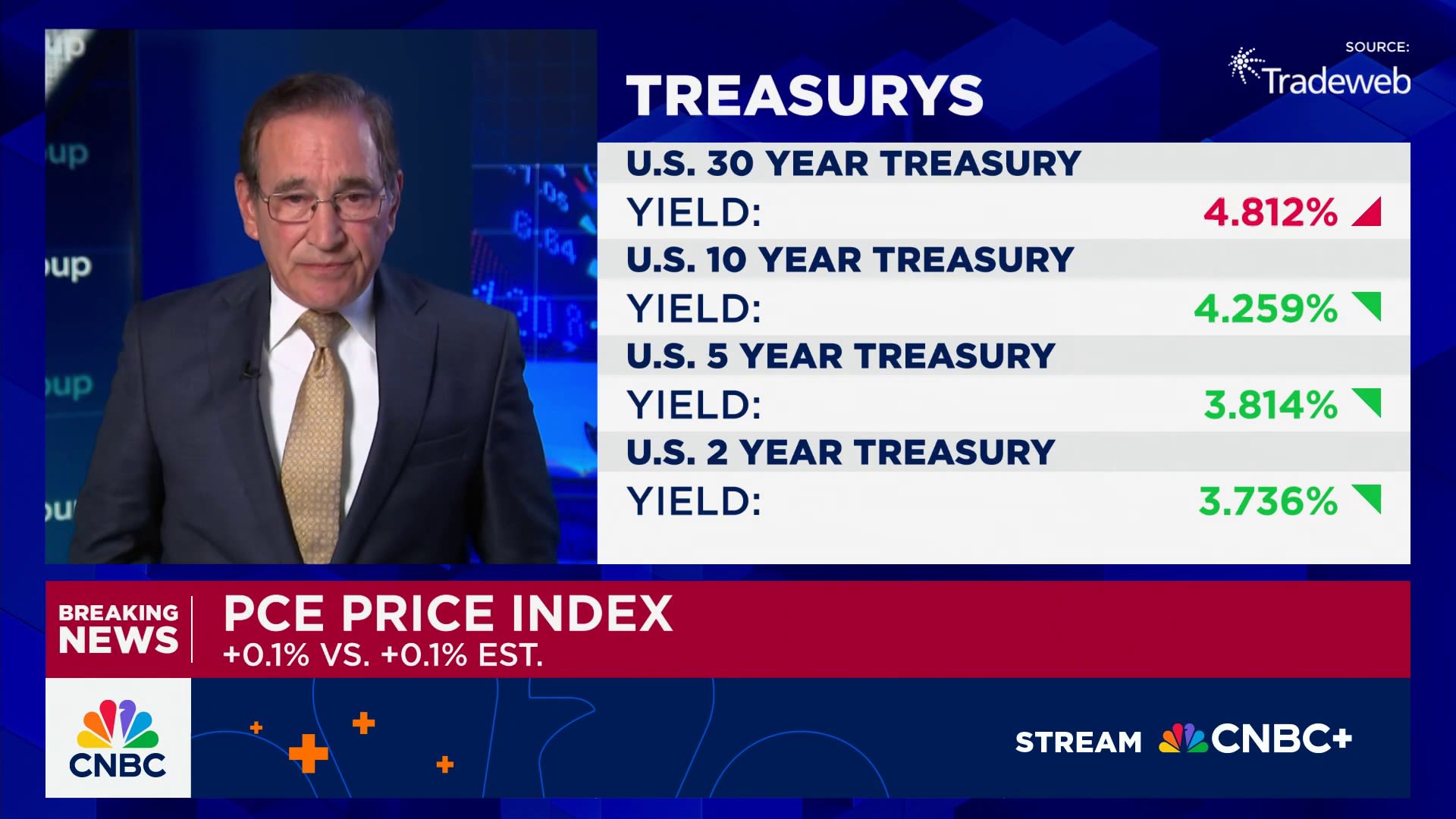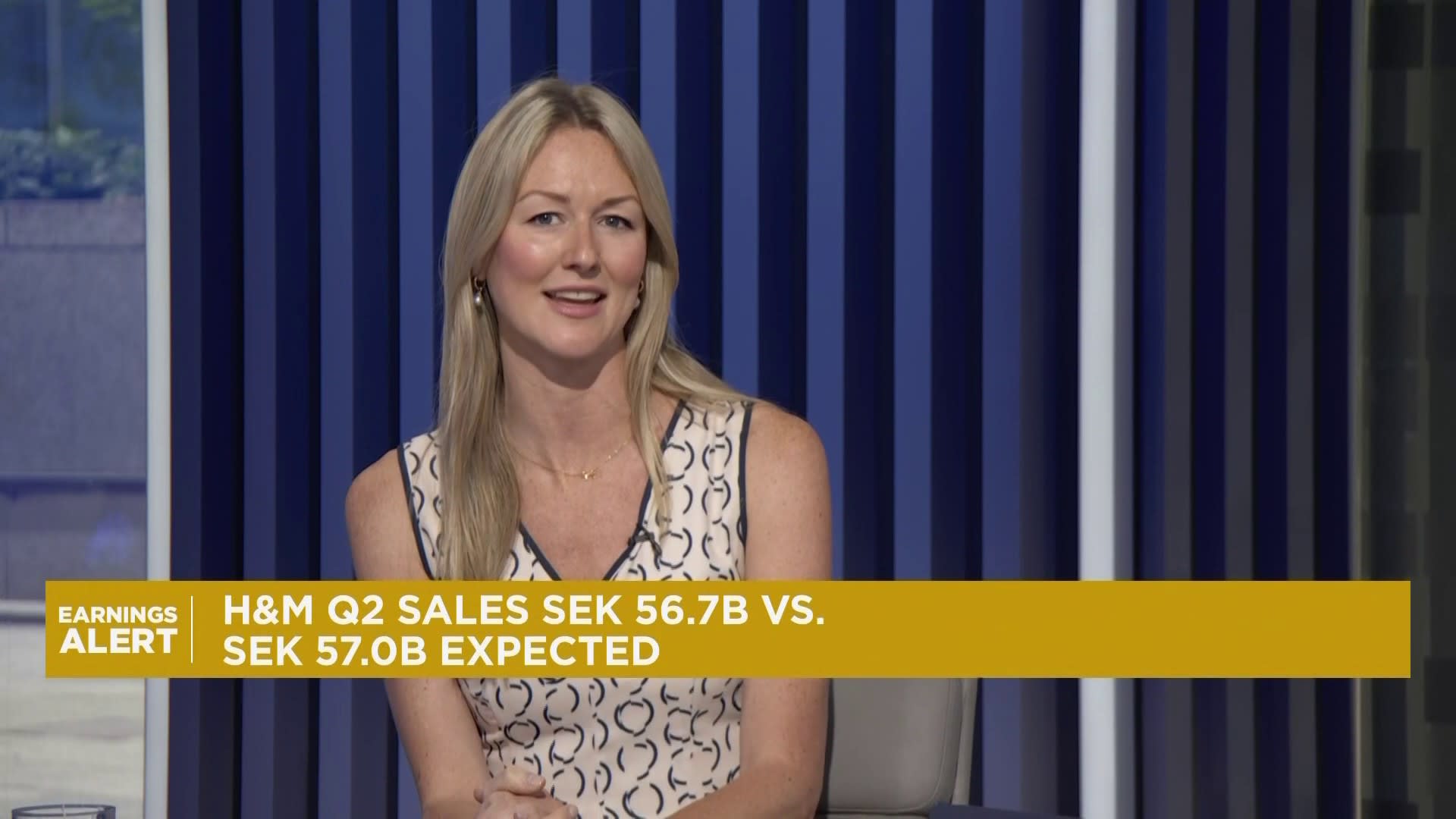The skyscrapers of the Frankfurt skyline in the evening, with the Deutschherrn Bridge in the foreground.
Frank Rumpenhorst | Picture Alliance | Getty Images
The German economy contracted by 0.2% in 2024, in the country’s second consecutive yearly slowdown, data from statistics office Destatis showed Wednesday.
The drop was in line with the expectations of economists polled by Reuters, according to LSEG data. The European Commission and a group of Germany’s leading economic institutes had both independently forecast a 0.1% dip in the German GDP in 2024.
Ruth Brand, president of the German statistics agency, said that “cyclical and structural pressures” hindered stronger economic development.
“These include increasing competition for the German export industry on key sales markets, high energy costs, an interest rate level that remains high, and an uncertain economic outlook,” she said in a statement.
Destatis said that both the manufacturing and construction sectors had suffered in 2024, while the services sectors recorded growth over the period.
The country has been dealing with a long-standing housebuilding crisis, which has been attributed to higher interest rates and construction costs. Several of Germany’s key industries, including the auto sector, have also been under pressure for some time. Carmakers have been struggling with the transition to electric vehicles, as well as competition from Chinese counterparts.
The German stock index DAX was last higher after the data release, climbing by 0.47% at 10:24 a.m. London time after already having started the day in positive territory.
Germany’s economy had already contracted by 0.3% in 2023.
Fourth quarter
Destatis on Wednesday also released an early first reading of the gross domestic product (GDP) in the fourth quarter, based on currently available information. The economy fell by 0.1% in the three months to end of December, compared with the previous quarter, when adjusted for price, seasonal and calendar variations. The regular first reading of Germany’s GDP for the fourth quarter will be released later this month, Destatis noted.
Robin Winkler, chief Germany economist at Deutsche Bank, on Wednesday said that, while the annual GDP contraction should not be a surprise to anyone, the preliminary reading for the fourth quarter of 2024 was unexpected and worrisome.
“If confirmed, it would mean that the German economy lost momentum again at the start of winter. The current political uncertainty in Berlin and Washington was likely an important factor,” he said in comments translated by CNBC.
Looking ahead, German economic institute Ifo on Wednesday warned that unless economic policy reforms are introduced, the German economy would struggle to “break free from stagnation” in 2025, with the institution expecting “perceptible growth” of 0.4% over the period in this scenario.
“If no countermeasures are taken, the ifo researchers fear that manufacturing companies will continue to relocate production and investments abroad,” the institute said in a statement. “Productivity growth would also remain weak, as value added and employment in highly productive industries would be replaced by value added in service sectors with low productivity growth.”
If “the right” policies are introduced, investing and working in Germany could nevertheless become a more viable option again, and the economy could expand by as much as 1%, Ifo added.











